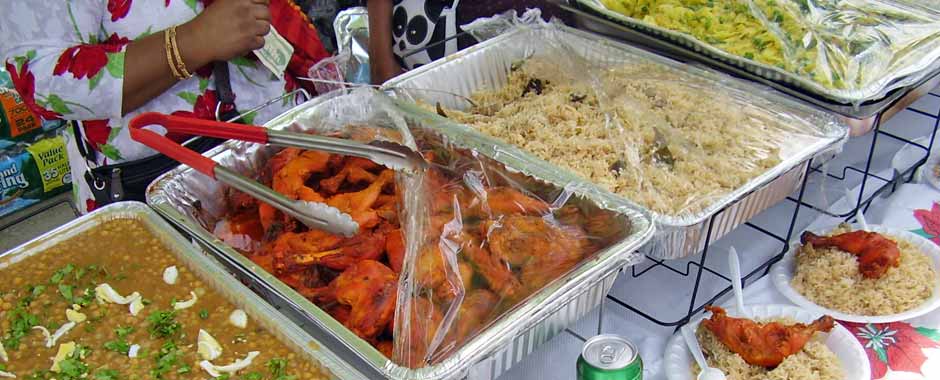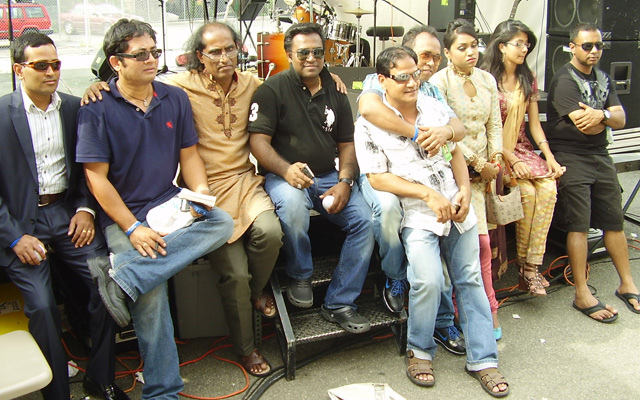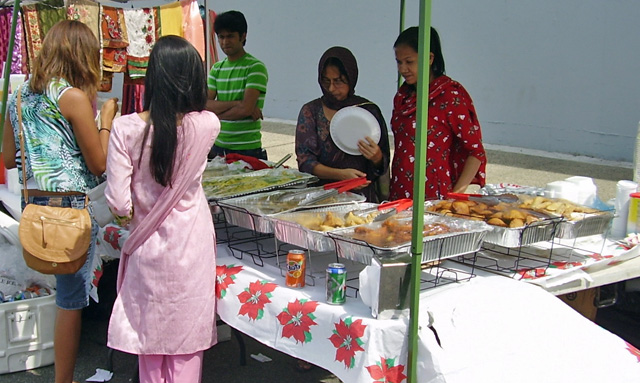By Lennin Reyes
As riders wait to catch the No. 6 subway line at the Zerega Avenue station on a mild June afternoon, they hear the sounds of reggaeton, hip-hop, and bachata blaring from the speakers of car radios running below the subway station. While the sounds of Drake or Prince Royce are commonplace in Parkchester, these chart-topping acts are overshadowed by the sound of a sitar.
That sitar is being played by a Bangladeshi musical group, who performed in front of hundreds of Bronx Bangladeshis at the 7th annual Bronx Potho Mela street fair, held on June 24 in Parkchester.
The street fair is in celebration of a community that has grown in Parkchester, and other parts of the Bronx, over the years. Mohammed Abdul Goffer Chowdhury, founding president and chief coordinator of the Bronx Bangladesh Society, helped organize the event since its inception in 2006, months after his organization was born. “We were anxious to get started on organizing the Potho Mela,” Chowdhury said. “It’s a social gathering for the Bangladeshis, and all Bronxites.”
Organizers are not the only ones excited, as residents and businesses alike joined in on the festivities. “Prior to this year, I participated in the festival as a customer,” said Nargis Ahmed, who works at Drug Mart Pharmacy on Westchester Avenue. “Now we took part in the Potho Mela with the pharmacy to spread the word about our business.”
Another first-timer who was anxious to join in on the fun is Dirwana Choudhury, a five-year Parkchester resident who had a food stall at the festival. “I wanted the people to enjoy some of the homemade food that I made,” she said, as she displayed some of her homeland’s cuisine, such as chatni, a combination of several spices, vegetables, and fruits.
Many of the attendees are immigrants from Bangladesh, including Choudhury’s son Samit, 16, compared the Bronx to his native homeland. “While the schools here are better, we don’t have as much freedom,” Choudhury said. “If we try to jump into the river, we get arrested.”
While people like Choudhury miss the freedoms of their homeland, others are ready for the future, which has become much brighter thanks to the passage of the DREAM Act at both the state and federal levels. “Children of undocumented immigrants are now able to complete their education,” first-generation Bangladeshi-American Rashad Mujumder, 17, said. “They won’t have to suffer because their parents do not have papers.”
As the future brightens for Bangladeshis, Mujumder hopes to see one thing remain constant. “No matter how many generations pass over the years, I hope they keep the Bangladeshi heritage intact,” he said.







